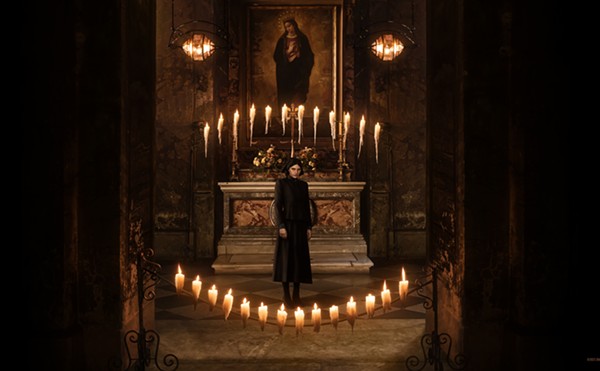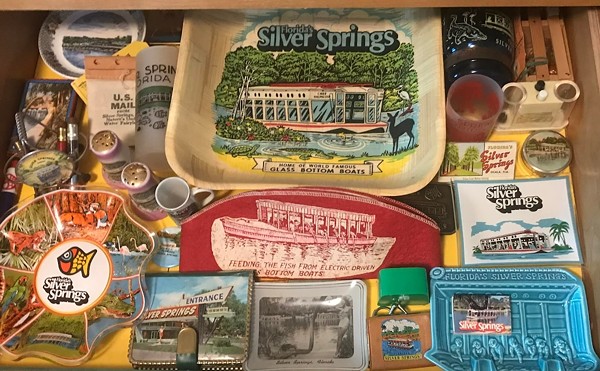SA: Why does our culture pair gentlemanliness and style with homosexuality?
JT: I tell people I’m half gay on my mother’s side. I’m the daughter she never had. I was raised by a pack of wild women and grew up looking at the world through women’s eyes… I’m not one to presume over an entire lifestyle, but something that gay men have that any man should aspire to is a curiosity, an openness, and unabashed perspective in wanting more out of their lives... If you’ve got the balls to live your life the way you want, then everything is available to you. You’re making choices based on your own demands and not those handed down to you. So I always take it as a compliment when someone thinks I’m gay.
SA: How did you cultivate the extravagant lexicon that characterizes the voice of The Modern Gentleman?
JT: I’ve certainly been accused of being grandiloquent. My mother was always one to read. She was informally educated when I was in high school, though she went back to college at 40 and became a doctor by 50... She got a set of vocabulary tapes we listened to in the car. Phineas (coauthor of The Modern Gentleman) ended up going to law school and I went to wine school. By the time we both came out we had colorful vocabularies, just sourced differently. He from his law books, and me from doing a lot of reading and spoken word poetry, but also from mom’s damn vocab-tapes.
In high school and college the educators I respected most were the ones who had this flourish of language. It was as though they had more crayons in their box than I did. Although I enjoy a resplendent fricative, and when it comes to profanity I feel like I can sling some hash with the best of them, I didn’t want to have a lazy lexicon and let those kinds of words substitute for when a better word would fit. I don’t mean using three-dollar words in two-dollar sentences... I try and only drop those words around people who would appreciate them instead of brandishing the language. It’s meant to be kept in your pocket and pulled out when necessary, not, “Hey check out the size of my Big Black Dictionary.”
SA: How many Emily Post books did you read when researching The Modern Gentleman?
JT: It all started with the 1958, Amy Vanderbilt’s Complete Book of Etiquette, that a neighbor had thoughtlessly defenestrated. They had literally thrown the book out the window… Part of the research went back as far as the 1600s with The Gull's Hornbook. We’ve included a bibliography of helpful books in The Modern Gentleman. Looking back over these now anachronistic tomes, you get a sense of how social etiquette has evolved… Emily Post was certainly one of the denizens of her time who brought social etiquette into popular culture. She made it more accessible. She said that even if you’re not of royal distinction you should still know how to host a proper party and how to write an invitation. We follow Vanderbilt and Post in that ideal that etiquette should be inclusionary.
SA: What do you think about the idea that an intelligent person can act the fool, but a fool can’t pass for a gentleman? If you think this is true, what can an uneducated man do to make himself more gentlemanly?
JT: There are those who prescribe to the, “fake it 'til you make it” philosophy. I don’t know if I believe in that because authenticity, as it has become more scarce, has become more important. There was a time when people could live duplicitously; they could have their inner and outer lives. Now the two have really merged. No longer can a man have a mistress in the next town over. You can’t have your online persona be very different than your true-life persona because people see through that veil. That has put a greater impetus on being authentic because it's just easier… I am not the modern gentleman. I aspire to be. The Modern Gentleman is not Jason Tesauro. It’s a book. It’s a brand. It’s and ideal that we should aspire to.
Instead of faking it, how can you integrate those parts that appeal to you into your life? If you’re single, I would start with wooing. Like looking for a job, you must distinguish yourself in the market place. Instead of trying to woo human resources, you’re trying to woo a lady. You can fake it, but she’s going to get to know the real you anyways, so why not lead with what is true. That is not an excuse to be an asshole, because that’s what is true for you. This is motivation to build a little class and elegance...
That whole section in The Modern Gentleman on the inner gentleman is about cultivating that foundation so you don’t have to fake it. It is incongruent to be well versed in the arts and the humanities but to be shallow. I think if you cultivate an appreciation for one, it naturally extends your reach and interests on the other. This makes you more interesting as a wooer and as a person. Instead of flipping through the channels, you’re flipping through The New Yorker… If you start working on your inner life, the development of dendritic branches reaching out in your brain and your outer life are a natural byproduct.
This is why I’m against this whole idea of men learning how to get laid with books on how to game women, how to use neuro-linguistic programing and certain kinds of touch and pattern interrupt to land unsuspecting lasses as though you’re tapping into their source code. That to me is inauthentic. If you practice what is in The Modern Gentleman, you’re going to get laid more just by happenstance because you will be a more vibrant and magnetic creature.
SA: Did you run into agents or publishers who wanted to market The Modern Gentleman as a novelty book or a gift for dads and grads?
JT: I couldn’t have asked the Fates for a better literary agent: Kimberly Cameron. Her firm had represented Henry Miller, Aldous Huxley, Upton Sinclair. They appreciated artists and weren’t just looking for volume. Being first time authors at the time, we nearly signed on with this literary lion, this veteran agent in New York who was like, “I can sell your book kid. I’ve sold 900 books in my career.” Then you look down the titles and it’s books that you buy in grocery stores. That is not a knock on those books. But if you want to be taken seriously as contributing to the cultural conversation then you can’t measure it in units. It needs to be measured in impact. Kimberly picked her craft purely on passion.
Then we found Ten Speed Press, which was run by this great old hippie who was more of a bibliophile than a businessman. Our editor at the time, who is now the head of Ten Speed, Aaron Wehner, shared our sensibilities. He said, "I want this book to be funny, to have great language, to have a snappy layout, to be clever, and I don’t want to hem in on the sardonic, trenchant nature that you two have.” He agreed that this book should be written for our generation. We care less about where the finger bowl goes and more about skinny dipping. We wanted the book to focus more on how we handle ourselves in daily events instead of worrying about what to do at the royal wedding.
Did we encounter that as an objection, yes, but we stuck to our guns, and said, we want someone who is going to promote this book as a lifestyle piece and not a gimmick. There are a lot of gimmick books out there. There’s Etiquette for Outlaws and others that have kitschy illustrations showing the dandy wearing a monocle and carrying his walking stick like Mr. Peanut. I’m not interested in being a snuff toting fop who says, “My Lady” at the coffee shop. That’s not who I am.
However, there are points within that classicism that can be borrowed and integrated with modernity. We call something classic because it has lasted. Why has the tuxedo remained virtually unaltered, or the martini. Fuck the Apple-tini. The classic gin martini is virtually unchanged in it’s formula because we got it right the first time. So I want to take those elements from Emily Post, form Vanderbilt, from Lord Chesterfield, and I want to pull out the parts that are still relevant and blend it with what is new. Social customs and etiquette are all fluid. To now say that a black tie event requires you to wear black or even a bowtie, is no longer correct. I’ve seen people rock white ties with black pants and be the most eloquent and purposefully dressed man in the room. So the rule needs to be refashioned around what the culture is going for now.
Visit TheModernGentelman.com to buy the book and for all things manners, savvy, and vice. Also Follow The Modern Gentelmen on Facebook and contact Jason Tesauro through Twitter to get real time answers on how to be a modern gentleman.
Follow Alfie on Twitter or Facebook and email him if interested in writing about Sex & Love.



















